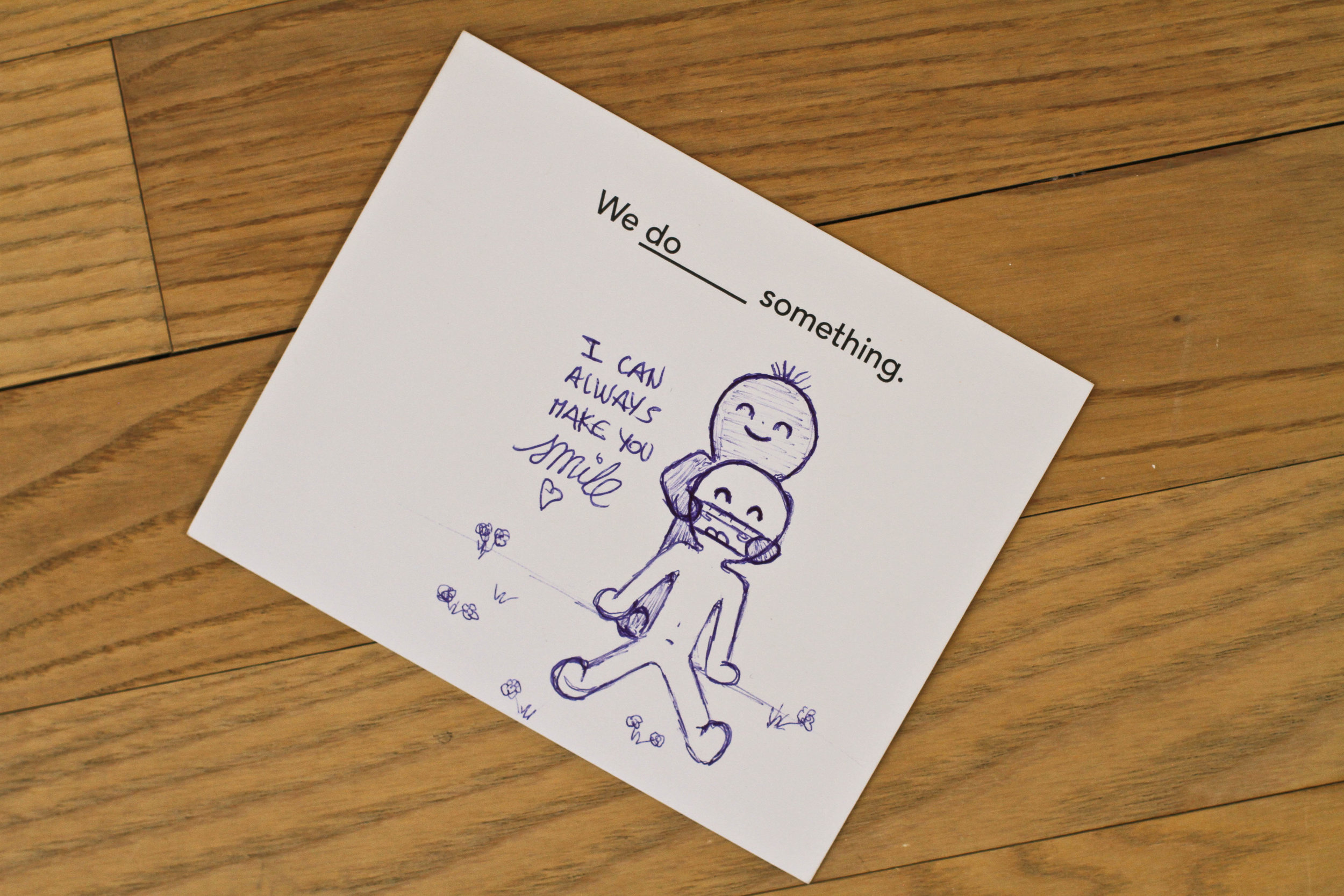what we learned at AIME + do good: A cheat sheet
On June 20th, we held our 14th funraiser, AIME + do good, to prevent suicide with cake & cocktails, friendship & learning, so that we could feel less powerless in the face of the suicides of Anthony Bourdain and Kate Spade. Below is what we learned from Lynn Harris and Tony Alfonso from AMI Québec, and Stephanie Fontaine and Christine Sauvé from Revivre: how to talk to friends we're worried about, what to do when a friend openly asks for help, and tips on how to self-care from those of you who attended. To see images of the event, click here.
Let's start with crowdsourced wisdom: self-care tips from you who attended our event (click on image to enlarge).
What should I do when someone comes to me with suicidal or dark thoughts?
1. ''...active listening is by far the best thing you can do when someone comes to you, because that means they trust you.'' - Tony Alfonso. Listen, without ANY judgement. Thank them for confiding in you.
2. You do not have to agree to keep it confidential: you want to help, but admit that you don't know enough to do it alone. Offer to call AMI Québec, Revivre, or any suicide prevention organization together and ask for support. Most organizations also accept emails, Facebook messages.
3. Decide how much you can handle: are you comfortable offering a list of resources, but no more? Can you drive this person to their meetings, call them every day - or once a week? The choice is yours, because your mental health is precious. As Christine reminded us: ''if you sink too, you can't help the other person''.
What if I'm worried about someone?
1. Please read this: short and smart, from Suicide Prevention Canada. Then, observe: do they exhibit more anxiety, inability to concentrate, anger, irritability, a change in sleep patterns, low energy, no motivation, lack of interest in things they would ordinarily enjoy?
2. Ask: Are you ok? Ask gentle questions about their sense of isolation, their sleep habits, have they been drinking or taking medications to manage those feelings or about their anxiety level. Have you had suicidal thoughts? ASK.
3. If you have a lived experience with depression, you may want to bond by sharing your experience, but beware of trying to compare. Validating by saying that you too have struggled can make the other person feel better, but acknowledging their experience and help them focus on their own reasons to live.
4. Ask what they do to stay positive when things are dark. Try to make them realize what they are doing already in order to keep on. Value their actions, their proactiveness, their coping strategies. Tell them how glad you are that they are fighting their demons, and talking to you. Acknowledge their pain, remind them that others have recovered from depression and that this conversation is an important step towards doing it too.
6. Get expert help for yourself before going any furrther (see below, or click any of the many links throughout this piece).
What if I'm the one struggling?
1. If you're reading this, you've taken an important step towards regaining control of your mental health. Be proud. You matter, and we care about you.
2. Tell someone: your friend, your relative, your teacher, an expert stranger: call Suicide Action Montreal 1.866.APPELLE; AMI Québec 514-486-1448; Revivre (you can call or email, here) 1-866-REVIVRE
3. Please remember: you are not alone.
KEY STATS:
1 in 5 people in the world will suffer from a mental health problem during their lifetime. 70% experience symptoms before the age of 20.
Quebec has the 3rd highest suicide rate in Canada, after Nunavut and Saskatchewan.
Approximately 10 Canadians commit suicide every day.
Men are 3x more likely to die by suicide than women, a pattern that has held true for the past 60 yrs.
Women attempt suicide almost 20x more often than men. Their rate of dying by suicide appears to be increasing.
30-50 yr. olds are the most likely to commit suicide (45% of deaths).
15-39 yr. olds are the next most likely age group to commit suicide (35% of deaths).
In both groups, 70% of suicides are committed by men: ''Single men are much more likely to die from suicide statistically than men who are married, followed by men who have lost a spouse or are divorced. The suicide rate is twice as high between the ages of 40 and 60 or so for men who are widowed or divorced than it is for those that are widowed or divorced at other ages."
Here's a free Spotify playlist featuring the songs you listen to to feel better, as shared by those who attended AIME + do good: Songs to feel better. NB: you do not have to download the Spotify player. Simply click on the green line at bottom of your screen marked: continue to web player, and the playlist will open on your desktop.
Poem by Véronique Grenier
Please share this in your world, you never know who it might help. We're working on the FR version!
















